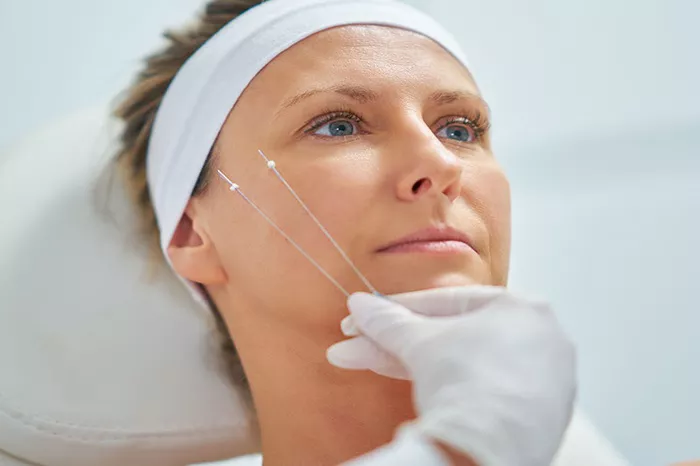Buccal fat removal has gained popularity as a cosmetic procedure aimed at achieving a slimmer facial appearance. But is it safe?
What Is Buccal Fat?
Buccal fat, or buccal fat pad, is a mass of tissue located in the cheek area, between the facial muscles. This fat contributes to the roundness of the cheeks, giving the face a fuller, more youthful appearance. Some individuals, however, may have more prominent buccal fat pads, resulting in a “chubby” face. Buccal fat removal targets this specific fat to create a more contoured facial structure.
The Procedure
Buccal fat removal is a relatively simple and quick procedure. It typically involves the following steps:
Consultation: The patient meets with a qualified plastic surgeon to discuss their goals and expectations.
Anesthesia: Local anesthesia is usually administered to numb the cheek area.
Incision: A small incision is made inside the mouth, reducing the risk of visible scarring.
Removal: The surgeon removes a portion of the buccal fat pad.
Closure: The incision is closed with sutures.
Recovery Process
The recovery period for buccal fat removal is generally short. Patients can expect:
Swelling and Bruising: These are common and typically subside within a few weeks.
Pain Management: Over-the-counter pain relievers are often sufficient to manage discomfort.
Follow-Up Visits: These are necessary to ensure proper healing and address any concerns.
Potential Risks and Complications
Like any surgical procedure, buccal fat removal carries certain risks. These include:
Infection: As with any incision, there is a risk of infection. Proper post-operative care is crucial.
Bleeding: Minor bleeding is expected, but excessive bleeding should be addressed immediately.
Asymmetry: Uneven fat removal can lead to facial asymmetry, requiring corrective surgery.
Nerve Damage: Although rare, there is a risk of nerve damage affecting facial movement.
Scarring: Internal scarring may occur but is generally not visible externally.
Long-Term Effects
Understanding the long-term effects of buccal fat removal is important:
Permanent Change: The results are permanent, as the removed fat does not regenerate.
Aging: As the face naturally loses fat with age, excessive removal of buccal fat can lead to a gaunt appearance over time.
Weight Fluctuations: Significant weight changes can affect the overall facial appearance, potentially altering the results.
Suitability for Buccal Fat Removal
Not everyone is an ideal candidate for buccal fat removal. Factors to consider include:
Age: Younger individuals typically have better skin elasticity, which aids in recovery and final appearance.
Health: Good overall health is necessary to minimize surgical risks.
Realistic Expectations: Patients should have realistic expectations about the outcomes and potential risks.
Alternatives to Buccal Fat Removal
There are alternatives to buccal fat removal for those seeking facial slimming:
Weight Loss: Overall weight loss can reduce facial fullness.
Non-Surgical Treatments: Options like facial exercises, ultrasound therapy, and radiofrequency treatments may offer subtle improvements.
Makeup Techniques: Contouring with makeup can create the illusion of slimmer cheeks.
See also: Top 5 Places To Get Buccal Fat Removal
Choosing a Qualified Surgeon
Selecting a qualified plastic surgeon is crucial for the safety and success of the procedure:
Board Certification: Ensure the surgeon is board-certified in plastic surgery.
Experience: Look for a surgeon with extensive experience in facial procedures.
Patient Reviews: Read reviews and testimonials from previous patients.
Consultation: A thorough consultation should address all questions and concerns.
Post-Operative Care
Proper post-operative care is essential for a smooth recovery and optimal results:
Follow Instructions: Adhere to the surgeon’s instructions regarding diet, activity, and medication.
Monitor Symptoms: Keep an eye on any unusual symptoms, such as excessive swelling or pain, and contact the surgeon if they occur.
Maintain Hygiene: Practice good oral hygiene to prevent infection at the incision site.
Psychological Considerations
The decision to undergo buccal fat removal can have psychological implications:
Self-Image: Ensure the motivation for surgery is rooted in a healthy self-image and realistic expectations.
Emotional Support: Seek support from friends, family, or a counselor if needed.
Post-Surgery Adjustment: Be prepared for the emotional adjustment period as you adapt to your new appearance.
Case Studies and Testimonials
Real-life experiences can provide valuable insights into the safety and outcomes of buccal fat removal:
Case Study 1: A 28-year-old woman underwent buccal fat removal to achieve a more defined facial structure. She reported minimal discomfort and was pleased with the natural-looking results.
Case Study 2: A 35-year-old man sought the procedure to address his “chubby” cheeks. He experienced some initial swelling but was satisfied with the improved contour of his face.
Testimonial: “I had buccal fat removal six months ago, and the results are fantastic. My face looks slimmer, and the recovery was quicker than I expected.”
The Future of Buccal Fat Removal
Advancements in cosmetic surgery continue to improve the safety and effectiveness of buccal fat removal:
Technological Innovations: New techniques and tools enhance precision and reduce recovery time.
Patient Education: Increased awareness and education help patients make informed decisions.
Regulatory Standards: Ongoing efforts to standardize practices ensure higher safety and quality.
Conclusion
Buccal fat removal is a generally safe procedure when performed by a qualified surgeon. However, as with any surgery, it is essential to understand the risks, benefits, and long-term effects. Thorough research, realistic expectations, and careful consideration of alternatives are crucial steps in making an informed decision about buccal fat removal.
Whether motivated by aesthetic goals or functional needs, potential candidates should prioritize safety and seek professional advice to achieve the best possible outcomes.
Related topics:
Does Insurance Cover Buccal Fat Removal?
How Long Does Buccal Fat Removal Swelling Last?
What Is The Best Age For Buccal Fat Removal?

